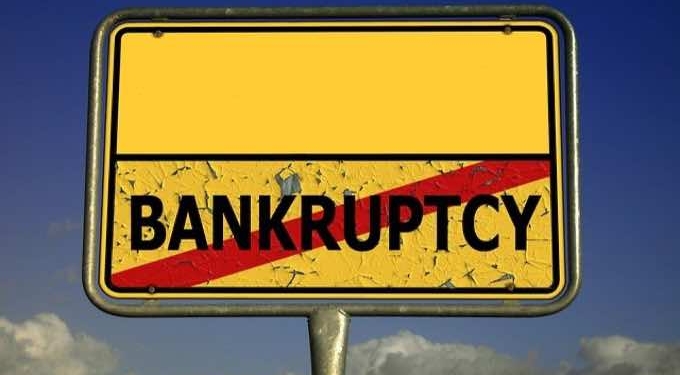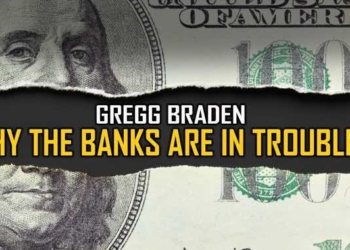There are many reasons why you might be considering bankruptcy, and you’ve more than likely been suffering financial problems for a long time if it’s something you’re considering. It’s a process that can be a smart move for many people depending on their situation, but it’s also something that should be understood and considered carefully before it’s proceeded with.
There are plenty of implications that come with filing for bankruptcy and many people aren’t particularly familiar with these or what they mean. It’s important to be fully informed and aware of what you’re getting into before making any important decisions. These decisions will impact your life for a long time to come after all.
If you want to find out more about all this and ensure you’re making an informed decision, the information below will help you.
The Process Takes Time
The first thing you need to know is that this whole process is going to take time. Many people mistakenly believe that bankruptcy proceedings will be a quick fix to their problems but that’s simply not the case, as much as you might wish it was.
You’ll have to go through court proceedings, and that’s something that takes time. Creditors, lawyers and all kinds of other professionals will take part in the process, so there’s going to be negotiation, dispute and lots of other variables to manage along the way.
Everything Must be Disclosed During the Bankruptcy Proceedings
It’s against the law to go through bankruptcy proceedings without disclosing every aspect of your finances and property. Any property you own or bank accounts you have all need to be declared and disclosed at the relevant times.
Failing to do so is not a small misdemeanor and could even result in a prison sentence in some cases. That’s why it’s so important to understand what you’re getting into and to know what you can expect from the process. Getting something wrong could be disastrous for you.
Your Finances Will be Exposed for All to See
All of your debts, possessions and financial interests will be openly scrutinized as you go through bankruptcy proceedings. That’s simply the nature of this kind of process. If that’s something you’re not prepared for, this is not the way forward for you.
There’s no hiding place when it comes to filing for bankruptcy and that’s something about the process that you’re just going to have to accept because there’s no getting around it or getting away from it, even if you would like to.
The Process Can be Complicated
The process of filing for bankruptcy is not straightforward and it’s not easy. And that’s one of the reasons why working with the right professionals with the right experience is so important. It can all be very complicated and only people with the right experience of these proceedings will be able to guide you properly.
There’s no way of going it alone to save money or anything like that. You’re going to need to do it properly in order to avoid making mistakes or being tripped up. There are so many things that you won’t understand if you haven’t experienced this before.

There Are Costs Associated with Filing for Bankruptcy
There are also lots of costs associated with filing for bankruptcy, and that can be hard to deal with when you’re in a position you currently find yourself in. Nevertheless, those costs have to be met unless you want to get yourself into even more financial trouble.
There are court costs, lawyers’ fees and plenty of other costs that need to be covered as you move through the process. That’s why it’s a mistake to believe that going through all this is going to be the cheap way out for you because that’s not the case.
There Are Different Types of Bankruptcy
There are also different types of bankruptcy that you need to know about, not just one. The one you’ll need to choose will obviously depend on your particular circumstances and it’s something that you’ll have to discuss in delta with your attorney.
Chapter 7 bankruptcy involves discharging most debts that aren’t secured. Chapter 13 involves setting up payment plans to repay your creditors in a most sustainable way. Chapter 11 contains a bit of both of these options, meaning it involves repayment of some debts but not others. Chapter 12 bankruptcy is an option only available to certain professions.
Getting Legal Advice and Support is Essential
As we mentioned earlier, getting the right legal advice and support is something that’s not always easy, but it does need to be done. You should contact a bankruptcy attorney from Leinart Law Firm if you want help you can trust.
It’s not a process that you can go through or should attempt to go through without first getting the right legal advice and support from people who know what they’re talking about – like bankruptcy attorneys Tacoma. Doing so would be a major mistake that you’d more than likely live to regret.
Declaring Bankruptcy Will Impact Your Credit Score
One of the things that will linger for a long time after you file for bankruptcy is the impact it’ll have on your credit score. There’s no getting away from the fact that your credit score is impacted when you go through this process.
Of course, with the right steps it’s always possible to improve and repair your credit score, so all is not lost. It’s just a case of getting back to normal and making wise financial moves at the soonest opportunity. Doing so will give you the results you’re looking for.
Shared Debts Won’t be Covered
If you have any debts that are shared with other people such as your partner, these won’t be covered by your bankruptcy proceedings, and it’s important to understand that. Not all types of debt can be wiped out by filing for bankruptcy, and that’s just the way it is.
If you’re unsure about any of your debts and how they’ll be affected by your bankruptcy proceedings, this is something that you should discuss with your attorney. They’ll be able to give you the answers and information you need.

Creditors May Challenge Your Attempt to File for Bankruptcy
It’s possible that the creditors that you owe money to will attempt to challenge the process. From their point of view, they want to get access to the money that you owe them. And that’s why they won’t necessarily like the fact that you’re attempting to have your debts wiped out.
It’s not always the case that creditors will attempt to challenge the process, but it’s also not impossible either. It’s something that you’ll need to be aware of and be prepared for because you never know what might happen. The process is full of surprises.
You’ll Have to Hand Over All Your Credit Cards
You’re not going to be able to carry on using your credit cards once you’ve filed for bankruptcy, so that’s something that you should prepare for. Things will change in your financial life from the moment you take this step and the way you use credit will certainly be one of them.
Your credit cards will be taken and you’ll have to get used to spending the money you have and the money you earn rather than the money you can access via credit. There’s no getting around that change.
For Debts That Can’t be Wiped Out, There Are Other Options
As mentioned above, there are likely to be some of your debts that simply can’t be wiped out by filing for bankruptcy and that’s just the way it is. For those debts, there are other options though. For example, you can use debt counselling options to set up a plan for paying back the debts.
You might also be able to explore debt consolidation options as well. These make it easier for you to pay off your debts in one rather than paying off lots of different small debts, which can be more difficult and more stressful for many people.
This Process Won’t Fix Any of Your Underlying Issues
Of course, it’s also important to remember that simply filing for bankruptcy doesn’t change or fix any of the underlying problems that got you into this situation to begin with. If you’re going to improve your financial situation going forward, getting support and understanding your underlying problems will be key.
Those underlying issues aren’t going to go away just because your debts are no longer hanging over you the way you were. Failing to tackle your underlying issues could result in you simply falling back into old habits and racking up debts once more.
When your financial situation is overwhelming you, it’s important to consider all the options open to you, including filing for bankruptcy. However, you should always go into such a process with your eyes open and with the advice from professionals who are acting in your best interests. It’s a step that should be taken lightly.
















